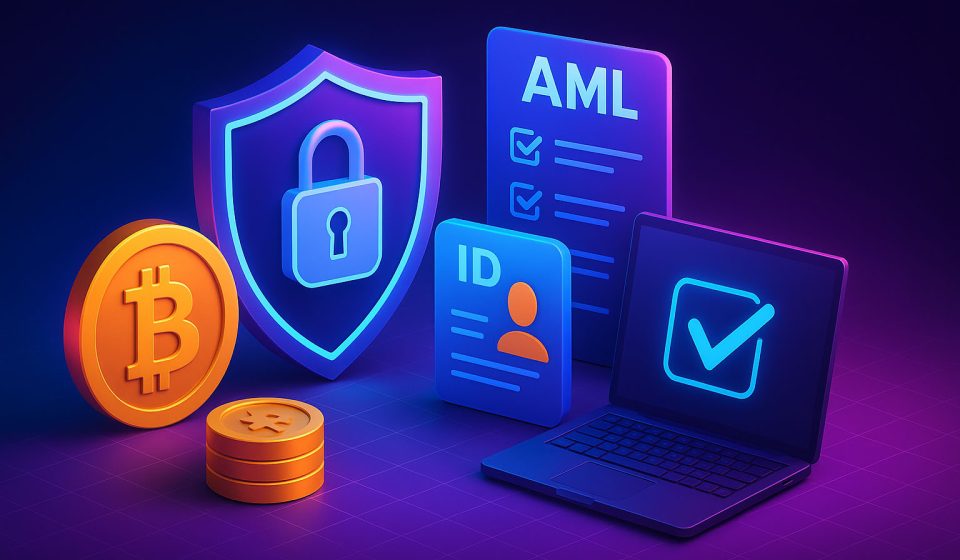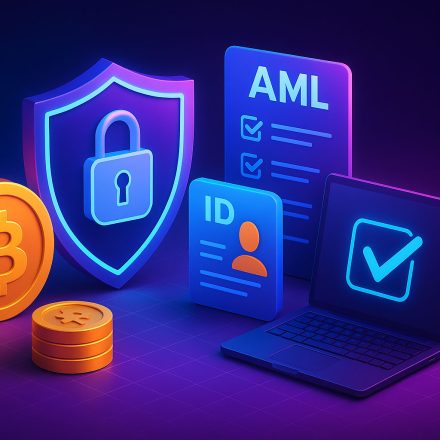
🛡️ What Is KYC and AML in Crypto? 7 Key Things to Know
What is KYC and AML in crypto is a critical topic as the industry faces growing regulation and scrutiny. KYC (Know Your Customer) and AML (Anti-Money Laundering) are legal standards that help prevent fraud, terrorism financing, and illicit transactions in financial systems — and they now apply to cryptocurrency platforms as well.
Table Of Content
- 🧾 What Is KYC in Crypto?
- KYC usually requires
- 🧯 What Is AML in Crypto?
- AML includes
- 🔍 Why Are KYC and AML Important?
- Benefits of KYC and AML
- ⚙️ How KYC and AML Are Applied in Crypto
- ⚖️ Pros and Cons of KYC and AML Compliance
- ✅ Pros
- ❌ Cons
- 🌐 Global Regulations and Trends
- 🎯 Final Thoughts
- 🔗 Learn More
This article breaks down what KYC and AML mean in the crypto space, how they work, and why they matter.
🧾 What Is KYC in Crypto?
KYC stands for Know Your Customer, a regulatory process where crypto exchanges and platforms verify a user’s identity before allowing them to access financial services.
KYC usually requires:
- Government-issued ID (passport, driver’s license)
- Proof of address (utility bill, bank statement)
- A selfie or facial recognition verification
By confirming the user’s identity, KYC helps reduce the risks of illegal activity and improves platform accountability.
🧯 What Is AML in Crypto?
AML stands for Anti-Money Laundering, which includes a set of procedures, laws, and regulations designed to stop the generation of income through illegal actions.
AML includes:
- Transaction monitoring
- Suspicious activity reporting (SAR)
- Wallet address risk scoring
- Blockchain analysis
Crypto platforms implement AML programs to detect and prevent criminal financial behavior.
🔍 Why Are KYC and AML Important?
Understanding what is KYC and AML in crypto is crucial because the lack of regulation in earlier crypto years led to widespread scams, hacks, and fraud.
Benefits of KYC and AML:
- Protect users from fraud
- Build trust in the crypto ecosystem
- Help platforms comply with international law
- Reduce risk of regulatory shutdowns
- Assist law enforcement in financial crimes
⚙️ How KYC and AML Are Applied in Crypto
| Platform Type | KYC/AML Requirement |
|---|---|
| Centralized Exchange (CEX) | Mandatory for most platforms |
| DeFi Protocols | Rare, but increasing pressure |
| NFT Marketplaces | Mixed, depending on jurisdiction |
| Wallet Providers | Usually no KYC |
Some platforms like Binance and Coinbase require full identity verification, while others offer partial access before KYC is completed.
⚖️ Pros and Cons of KYC and AML Compliance
✅ Pros:
- Increases user protection
- Supports institutional adoption
- Encourages legal clarity and transparency
❌ Cons:
- Reduces privacy and anonymity
- Adds friction for users in underbanked regions
- Centralizes user data (risk of data breaches)
- Conflicts with core crypto ideals of decentralization
🌐 Global Regulations and Trends
Governments are tightening control over crypto with KYC/AML rules:
- US: FinCEN requires registration and reporting
- EU: AMLD5 and MiCA require identity verification
- Asia: Singapore and Japan enforce strict KYC policies
- Turkey, Nigeria, and others: Increasing surveillance of exchanges
Regulatory compliance is becoming a non-negotiable for crypto platforms that want to operate globally.
🎯 Final Thoughts
What is KYC and AML in crypto is more than a compliance checklist — it’s a balancing act between security and decentralization. While these measures help protect the industry from crime and improve public trust, they also raise concerns about privacy and accessibility.
As crypto matures, expect continued evolution in how KYC and AML are applied across centralized and decentralized systems.
🔗 Learn More
Internal Link → Regulation & Compliance
External Link → https://www.investopedia.com/terms/k/know-your-customer-kyc.asp












